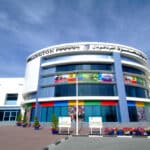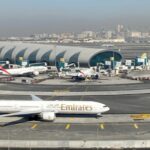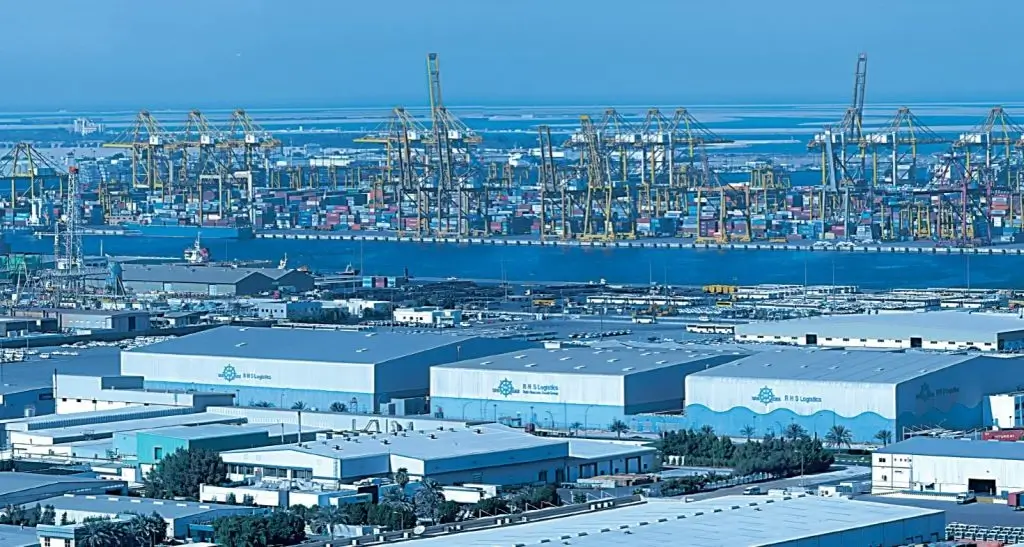
Back in the 1980’s the Dubai government realised that they needed to dramatically increase the economic activity in the emirate. Spearheaded by Sheikh Rashid bin Saeed Al Maktoum, the government opened the first of the Dubai free zones in Jebel Ali in 1985.
Designed to attract foreign investment and promote economic diversification. JAFZA’s success in providing tax incentives, streamlined regulations, and world-class infrastructure led to the rapid expansion of the free zone model. Subsequently, several other free zones were established across Dubai, each catering to specific industries such as media, technology, finance, and healthcare.
I first worked with a free zone in 2005 and was very impressed with the setup and facilities back then, and how they encouraged businesses to start and grow. The model has grown over the years and now there are many different free zones for individual industry sectors.

Today, Dubai’s free zones are pivotal in driving the emirate’s economic growth, serving as hubs for international trade, innovation, and entrepreneurship, and embodying Dubai’s relentless pursuit of excellence in the global business landscape.
There are other freezones in the UAE as well, in the other Emirates. It is possible that your company activities might be more suitable for a freezone outside of Dubai like in Abu Dhabi, Ras Al Khaimah, Sharjah, etc.
Please note: This article does not constitute any form of legal advice, and is just an overview of the options available. Information can change so please check the official links given at the end of the article. As with anything like this, please consult a lawyer or business startup consultancy in Dubai. You can google them.
Please note: Both VAT and Corporation Tax have been introduced in the UAE and some types of free zone companies are not eligible to pay these taxes. This article does not constitute any kind of legal advice on these matters and you are advised to speak with a qualified and Dubai-certified accounting firm.
Free Zones in Dubai
Below is a table listing all the free zones in Dubai. This list may be missing some locations and can change.
| Free Zone Name | Description | Official Website |
|---|---|---|
| Dubai Airport Free Zone (DAFZA) | Focuses on aviation, logistics, and IT. | DAFZA Website |
| Jebel Ali Free Zone (JAFZA) | Known for manufacturing and trade. | JAFZA Website |
| Dubai Multi Commodities Centre (DMCC) | Specializes in commodities trading. | DMCC Website |
| Dubai Internet City (DIC) | A hub for information technology. | DIC Website |
| Dubai Media City (DMC) | Focuses on media and communications. | DMC Website |
| Dubai Knowledge Village (DKV) | Dedicated to education and training. | DKV Website |
| Dubai Silicon Oasis (DSO) | Specializes in technology and electronics. | DSO Website |
| Dubai Healthcare City (DHCC) | Focused on healthcare and medical services. | DHCC Website |
| Dubai Studio City (DSC) | Primarily for media production. | DSC Website |
| Dubai South Free Zone | Specializes in logistics and aviation. | Dubai South Website |
| Dubai International Financial Centre (DIFC) | A hub for financial services. | DIFC Website |
| Dubai South Logistics District (formerly Dubai World Central Logistics) | Logistics operations. | Dubai South Logistics District Website |
| Dubai Cars andAutomotive Zone (DUCAMZ) | Focuses on the automotive industry. | DUCAMZ Website |
| Dubai Design District (d3) | Specializes in the design and creative industries. | d3 Website |
| Dubai Biotechnology & Research Park (DuBiotech) | Biotechnology research. | DuBiotech Website |
| Dubai Outsource City (DOC) | For outsourcing and business process operations. | DOC Website |
| Dubai Academic City (DAC) | A hub for academic institutions. | DAC Website |
| Dubai Science Park (DSP) | Focused on science and research. | DSP Website |
| Dubai International Academic City (DIAC) | An academic free zone. | DIAC Website |
| Dubai Flower Center (DFC) | Specializes in the flower trade. | DFC Website |
| Dubai Textile City (DTC) | Focuses on the textile industry. | DTC Website |
| Dubai Food Park (DFP) | Dedicated to the food industry. | DFP Website |
| Dubai Auto Zone (DAZ) | Specializes in the automotive sector. | DAZ Website |
| Dubai Maritime City (DMC) | Focused on maritime businesses. | DMC Website |
| Dubai World Trade Centre (DWTC) Free Zone | Offers trade and exhibition facilities. | DWTC Website |
| International Humanitarian City (IHC) | Provides support for humanitarian organizations. | IHC Website |
| Dubai CommerCity | Focuses on e-commerce and trade. | Dubai CommerCity Website |
| Dubai Aviation City Corporation (DACC) | A master developer for aviation-related businesses. | DACC Website |
| Dubai Technology Entrepreneur Campus (Dtec) | Supports tech startups. | Dtec Website |
| Dubai Industrial Park | Specializes in industrial activities. | Dubai Industrial Park Website |
| Dubai Metal and Commodities Centre (DMCC Metals) | Focuses on metals trading. | DMCC Metals Website |
| Dubai Logistics City | For logistics and trade operations. | Dubai Logistics City Website |
| Dubai Creative Clusters Authority (DCCA) | Governs creative clusters. | DCCA Website |
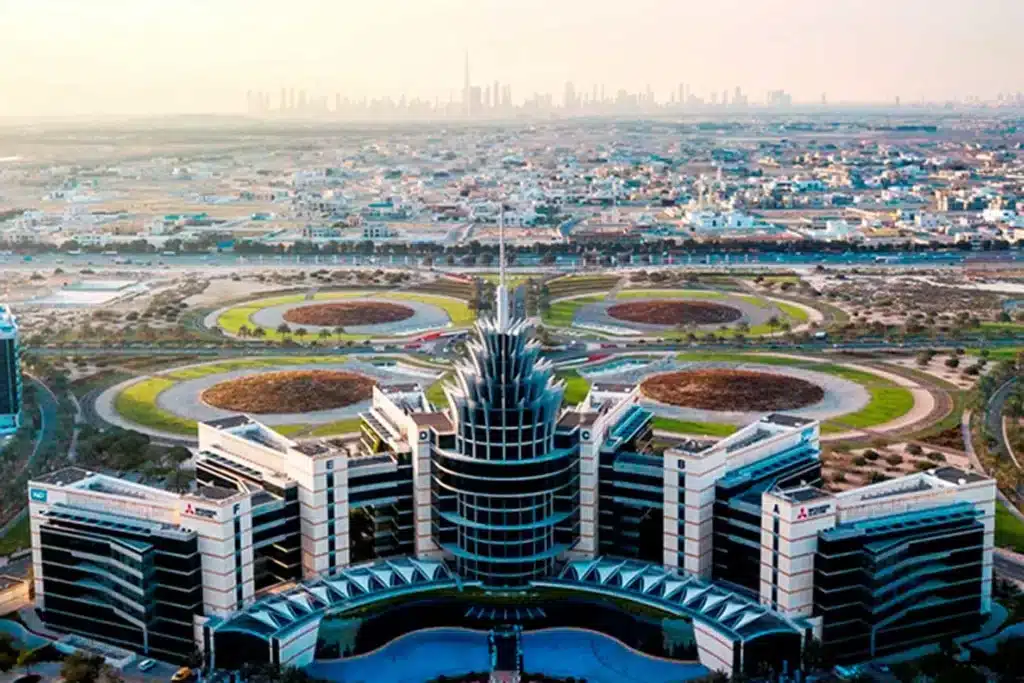
Types of Dubai Free Zones
Dubai Free zones can be broadly classified into three types:
- General-purpose free zones: These free zones cater to a wide range of industries, including trading, manufacturing, and services.
- Industry-specific free zones: These free zones are focused on specific industries, such as media, technology, and healthcare.
- Free trade zones: These free zones are designed to facilitate international trade and investment.
General Advantages of Dubai Free Zones
Dubai Free zones offer a number of advantages to businesses, including:
- 100% foreign ownership: Businesses in Dubai Freezones can be 100% owned by foreign investors.
- Tax exemptions: Businesses in Dubai Freezones are exempt from corporate tax, income tax, and VAT. NOTE: New corporation and VAT tax laws introduced recently mean that certain types of free zone companies must pay corporation tax and VAT.
- Streamlined business setup process: The business setup process in Dubai Freezones is relatively streamlined and efficient.
- World-class infrastructure: Dubai Free Zones offer world-class infrastructure and amenities, including state-of-the-art offices, warehouses, and logistics facilities.
- Strategic location: Dubai is strategically located at the crossroads of Europe, Asia, and Africa, making it an ideal hub for international trade.
Specific Advantages of Dubai Free Zones
In addition to the general advantages listed above, Dubai Freezones also offer a number of specific advantages, depending on the free zone and the industry. For example, some free zones offer specialized support for startups, while others offer access to research and development facilities.
Disadvantages of Dubai Free zones
While Dubai Free zones offer a number of advantages, there are also some disadvantages to consider, including:
- Restricted business activities: Each free zone has its own specific list of permitted business activities. Businesses are not allowed to engage in activities that are not on the list.
- Higher rental and operational costs: The rental and operational costs in Dubai Freezones can be higher than in other parts of Dubai.
- Limited market access: Businesses in Dubai Freezones are typically restricted to conducting business within the boundaries of the free zone.
- Physical presence requirements: Businesses in Dubai Freezones are required to have a physical presence in the free zone, such as an office or warehouse.
- Restrictions on workforce: Businesses in Dubai Freezones may be subject to restrictions on the number of employees they can hire and the types of visas they can obtain for their employees.
- Dependency on Free Zone authorities: Businesses in Dubai Freezones are subject to the regulations and policies set by the Free Zone authorities.
- Potential competition: There may be a high level of competition in some Dubai Freezones, especially in the most popular industries.
Choosing the Right Dubai Freezone for Your Business
When choosing a Dubai Freezone for your business, it is important to consider the following factors:
- Type of business activity: Make sure that the free zone you choose allows the type of business activity you plan to engage in.
- Target market: Consider your target market and choose a free zone that is well-positioned to serve that market.
- Budget: Factor in the costs of renting office space, obtaining a business license, and securing visas for your employees.
- Infrastructure requirements: Consider your infrastructure requirements, such as the size and type of office space you need and the proximity to transportation and other amenities.
- Regulatory compliance: Make sure that the free zone you choose complies with all applicable regulations.
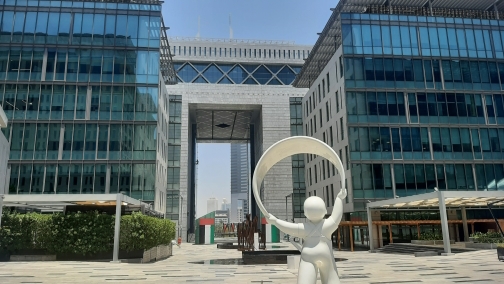
Setting Up a Business in a Dubai Freezone
Once you have chosen a Dubai Freezone for your business, you can begin the process of setting up your business. The steps involved will vary depending on the free zone, but the general process is as follows:
- Choose a free zone: As discussed above, it is important to choose a free zone that is right for your business.
- Obtain a business license: You will need to obtain a business license from the Free Zone authority. This process will involve submitting an application and paying a fee.
- Open a bank account: You will need to open a bank account in Dubai in order to conduct business.
- Secure visas for employees: If you plan to hire employees, you will need to secure visas for them. The visa requirements will vary depending on the nationality of the employee.
- Rent office space: You will need to rent office space in the free zone. The cost of office space will vary depending on the size and location of the office.
Operating a Business in a Dubai Freezone
Once you have set up your business in a Dubai Freezone, you can begin operating your business. There are a few things you should keep in mind, including:
- Complying with free zone regulations: It is important to comply with all of the regulations set by the Free Zone authority. This includes paying all applicable fees and submitting required reports.
- Maintaining good corporate governance: It is important to maintain good corporate governance practices. This includes having a clear corporate structure, holding regular board meetings, and keeping accurate financial records.
- Building relationships with key stakeholders: It is important to build relationships with key stakeholders, such as the Free Zone authority, government agencies, and other businesses in the free zone.
- Networking with other businesses: Networking with other businesses in the free zone can help you to generate leads and learn from other entrepreneurs.
Video Guide
Conclusion Dubai Free Zones
Dubai Freezones offer a number of advantages to businesses, including 100% foreign ownership, tax exemptions, and streamlined business setup procedures. However, it is important to weigh the advantages and disadvantages carefully before choosing to set up your business in a Dubai Freezone.
Another reminder. You must take proper legal advice when planning your company setup and tax affairs. There are hundreds of companies in Dubai that can help you do this. Please use google.
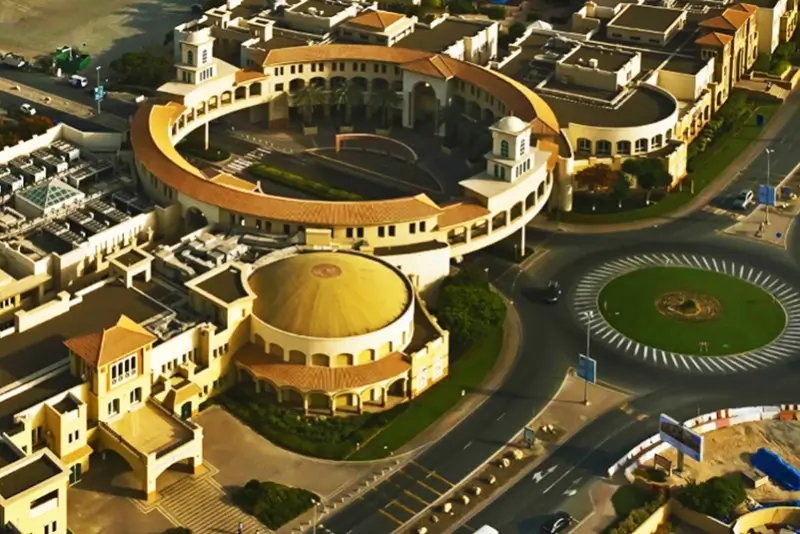
FAQ
What are the tax benefits of operating in a Dubai Freezone?
Operating in a Dubai Freezone offers several tax benefits. Businesses within these zones typically enjoy complete exemption from corporate and personal income taxes for a specified period, often up to 15 years. This exemption allows companies to maximize their profits and reinvest in their growth without the burden of taxation. However recent changes in the tax system mean that some companies will be eligible for corporate tax and VAT.
Are there any restrictions on the types of businesses allowed in Dubai Freezones?
Yes, there are restrictions on the types of businesses allowed in Dubai Freezones. Each free zone has its own set of permitted business activities. Businesses operating within a free zone are typically confined to specific activities defined by the zone’s authority. It’s important to check the list of allowed activities for the particular free zone you are interested in to ensure it aligns with your business plans.
Can a Dubai Freezone company trade with businesses on the UAE mainland?
Dubai Freezone companies often face restrictions on conducting business with entities outside the free zone, including those on the UAE mainland. If your business plans involve trading with companies on the UAE mainland, you may need to work with a local distributor or agent to facilitate such transactions, which can add complexity to your supply chain.
What are the typical costs associated with setting up a business in a Dubai Freezone?
Setting up a business in a Dubai Freezone involves various costs and fees, including:
- License fees: These fees vary depending on the type of license you require.
- Visa fees: If you plan to sponsor employees, there will be costs associated with obtaining and renewing visas.
- Leasing expenses: Renting office or warehouse space within the free zone incurs leasing costs.
- Other miscellaneous fees: There may be additional fees for services such as notarization and document processing.
The specific costs can vary between different free zones, so it’s important to research and budget accordingly.
How can I choose the right Dubai Freezone for my business?
Choosing the right Dubai Freezone for your business involves considering several factors:
- Nature of your business activities: Ensure that the free zone allows your specific business activities.
- Target market: Consider your target market and proximity to potential customers.
- Budget: Evaluate the costs associated with setting up and operating in different free zones.
- Infrastructure: Assess the facilities and infrastructure available in the free zone.
- Legal obligations: Understand the legal requirements and regulations of the chosen free zone.
By matching these factors with the right free zone, you can make an informed decision that aligns with your business goals.
What legal obligations should I be aware of when operating in a free zone?
When operating in a Dubai Freezone, you should be aware of various legal obligations, including:
- Compliance with free zone regulations: Ensure that you adhere to the rules and regulations set by the respective free zone authority.
- Employment regulations: Understand labor laws and regulations governing employment contracts, visas, and employee rights.
- Intellectual property protection: Safeguard your intellectual property by registering trademarks and patents, if applicable.
Consulting with legal experts familiar with the specific free zone’s regulations is advisable to ensure compliance.
Is it possible to expand my business beyond the Dubai Freezone?
Yes, it is possible to expand your business beyond the Dubai Freezone. There are several options for expansion, including:
- Establishing a presence on the UAE mainland: This allows you to conduct business with entities outside the free zone.
- Expanding internationally: Dubai serves as an excellent hub for businesses looking to expand their reach into global markets.
Expanding beyond the free zone can provide access to a wider customer base and new opportunities for growth.
How do Dubai Freezones support businesses during their initial setup?
Dubai Freezones offer a range of support services to assist businesses during their initial setup. These services may include:
- Streamlined registration processes: Simplified procedures for obtaining licenses and permits.
- Administrative support: Assistance with documentation and paperwork.
- Business consulting: Guidance on legal and regulatory requirements.
- Access to networking opportunities: Connections with other businesses and potential partners.
These services can help newcomers navigate the setup process efficiently.
Are there any success stories of businesses in Dubai Freezones?
Yes, there are numerous success stories of businesses that have thrived in Dubai Freezones. These stories often highlight companies that have overcome challenges, achieved significant growth, and become industry leaders. Learning from these success stories can provide valuable insights into the potential for success within Dubai Freezones.
Can I maintain 100% foreign ownership of my business within a Dubai Freezone?
Yes, one of the key advantages of Dubai Freezones is that they allow businesses to maintain 100% foreign ownership. Unlike in other parts of the UAE where local sponsorship may be required, free zone companies are not bound by such restrictions. This freedom empowers entrepreneurs to retain full control over their ventures.
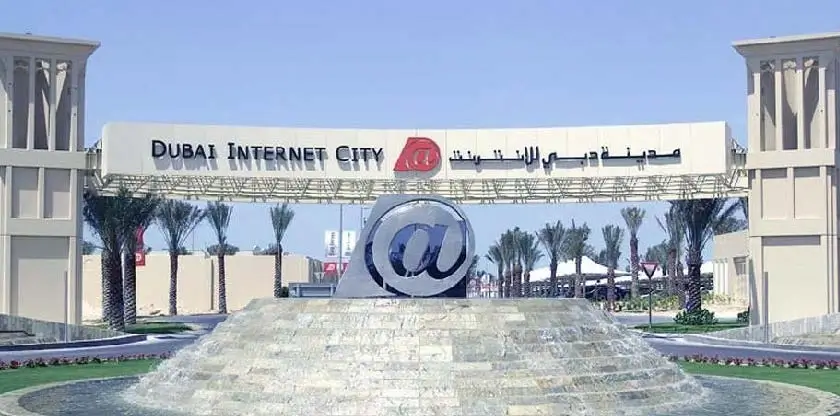
Useful Links
- For the latest office information about Free Zones in the UAE.
- For the latest information about taxes in the UAE.
- For a general guide to Dubai.
- If you are looking to start a business in Dubai.
- More information about the Dubai International Financial Centre (DIFC)
- There is also the Dubai Business Bay district to check out.
- Don’t forget to have some fun though! The best resorts in Dubai.
- The best beaches in Dubai.
- Checkout the DMCC at Jumeirah Lake Towers.
- For financial services in Dubai. check this article about Banking in Dubai.
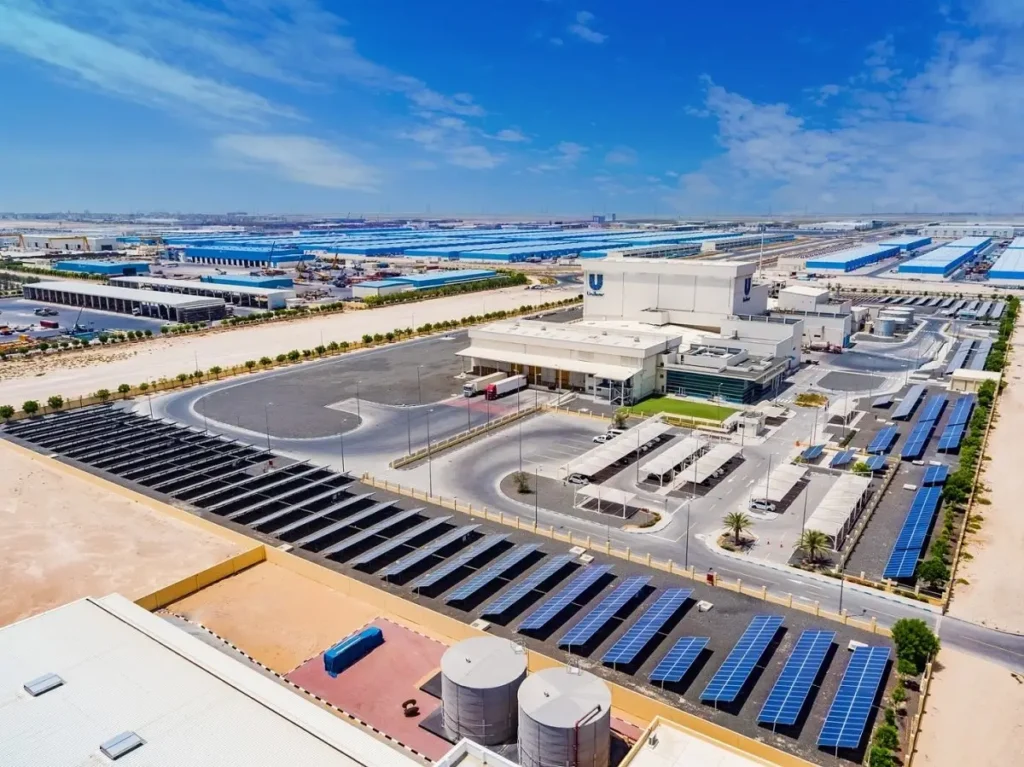
Key Takeaways
- Dubai Freezones provide tax benefits, 100% foreign ownership, and ease of business setup.
- However, businesses face restrictions on activities and competition within free zones.
- Choosing the right free zone is crucial, and legal compliance is essential.
- Success stories demonstrate the potential for growth and success in Dubai Freezones.


